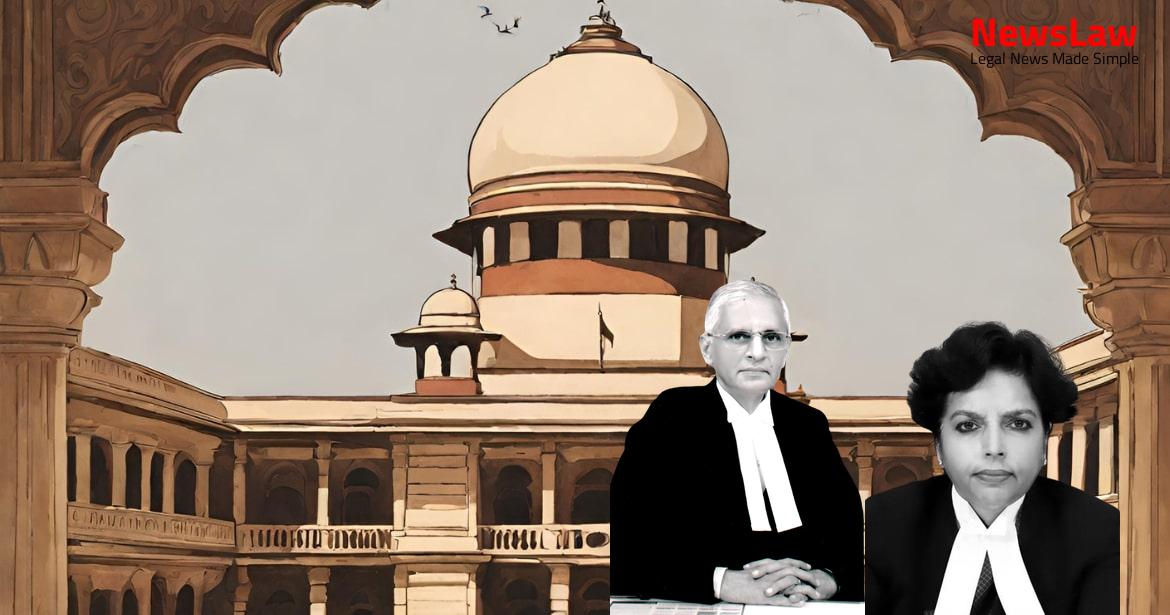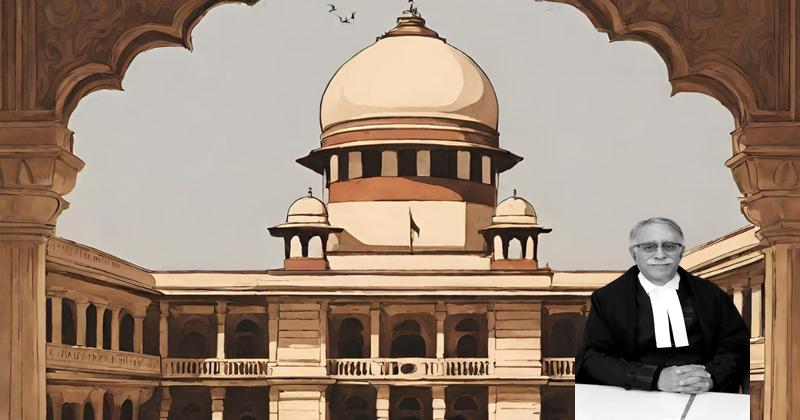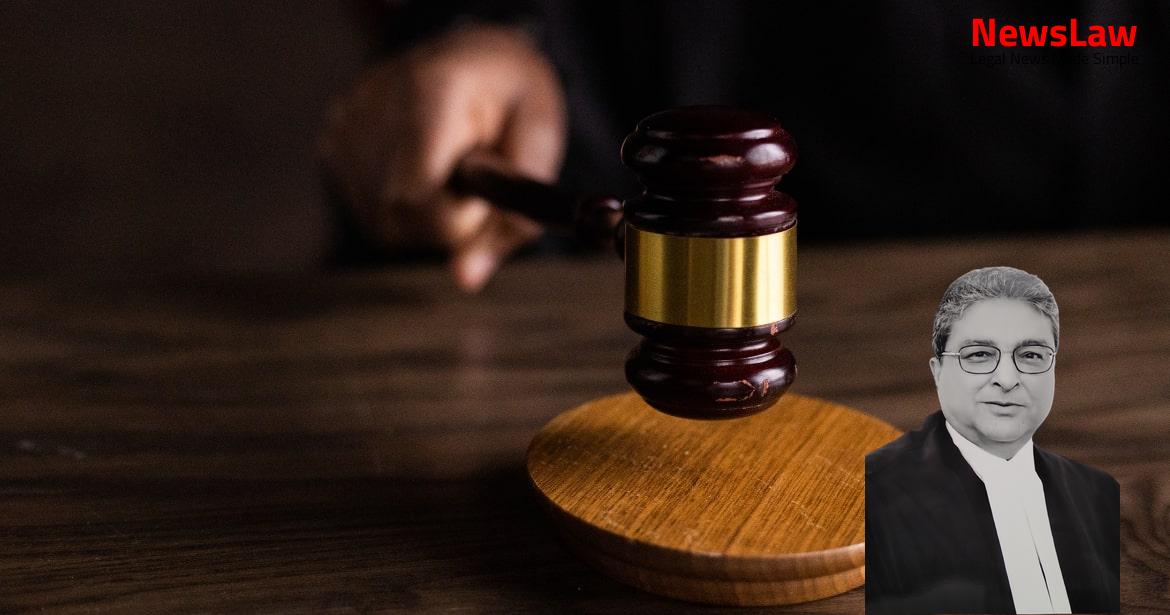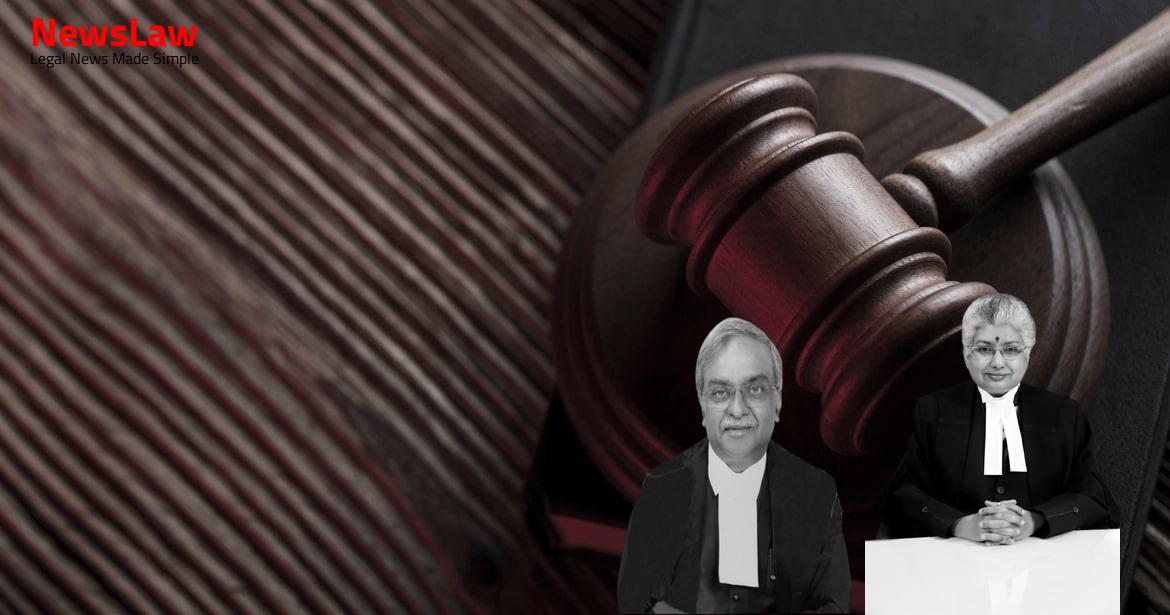Delve into the detailed legal analysis conducted by the court in a recent judgment concerning the presumption of dowry death. The case revolves around the interpretation of key legal provisions and the court’s assessment of witness testimonies and evidence. Analyzing the complex dynamics of establishing the offense and the burden of proof on the accused. Stay tuned to unravel the legal intricacies of this significant judgment.
Facts
- Judgment and order dated 17 April, 2010 passed by the Sessions Judge in Sessions Trial No.18 of 2018 was set aside.
- Appellants challenged the judgment dated 14 September, 2017, passed by the High Court of Uttarakhand at Nainital, which reversed the acquittal by the Sessions Judge and sentenced them to rigorous imprisonment for various offenses under IPC.
- Appellants have been convicted under Sections 498A, 304B, and 120B of IPC and sentenced to undergo rigorous imprisonment for seven years with a fine of ₹10,000/- for the offense under Section 304B IPC.
- The trial Court had earlier acquitted the appellants on 17 April, 2010, but the State of Uttarakhand appealed leading to the High Court’s decision overturning the acquittal and imposing sentences.
- Appellants also received sentences of one year under Section 120B IPC and two years under Section 498A IPC.
- The complainant suspected foul play in his sister’s disappearance due to repeated demands for dowry by the appellants.
- An investigation led to the discovery of the deceased’s body in the Ganga river.
- A case was registered against the appellants under Sections 498A, 304B, and 120B of IPC due to the suspicious circumstances surrounding the death within six months of marriage.
- The appellants denied the allegations during trial and presented witnesses in their defense.
- The deceased, Sushila, had gone missing from her matrimonial home on 24 April, 2008.
- The mother of the deceased was informed by the appellants about Sushila’s disappearance, leading to the involvement of the complainant who resided in Haridwar.
Also Read: Time as Essence of Contract in Sale Agreement: Legal Analysis
Arguments
- The defense counsel for the appellants argued against the presumption raised by the provision of delay in registering the missing complaint of the deceased.
- The High Court’s error in noting the conduct of the appellants leading to a delayed missing complaint was highlighted.
- Contradictory views of the High Court in determining the timing of filing the complaint after the incident were pointed out.
- Disagreement with the High Court’s conclusion on harassment for dowry based on the deceased staying at her parental home for studies and testimonies indicating no dowry demands during marriage talks.
- Evidence of appellant No.1’s bank account for the deceased and deposition of a doctor regarding the cause of death were raised to challenge the High Court’s findings.
- Critique of the High Court’s reliance on judicial notice regarding villagers and forest activities without concrete evidence in the case.
- Argument in favor of the trial Court’s valid conclusion and against the High Court’s deviation from it without strong grounds.
- The presumption of dowry death in Section 304B IPC can be rebutted by the accused during the trial if all the ingredients of the offense are not satisfied.
- The High Court in appeals is required to re-evaluate the evidence presented, as done meticulously in this case by referring to witnesses’ testimonies.
- The legal provision of Section 304B IPC outlines the main ingredients necessary to establish the offense of dowry death.
- These ingredients include cruelty or harassment related to dowry demand, unnatural death within 7 years of marriage, involvement of husband or relatives, and timing of cruelty before death.
- Section 113B of the Indian Evidence Act provides for a presumption of dowry death if cruelty or harassment for dowry is proven soon before the woman’s death.
- In cases where the wife’s death occurs soon after marriage in unnatural circumstances, the burden is on the accused to explain the circumstances if the basic ingredients of the offense are proven.
- It was argued that the trial Court misdirected itself in this case, leading to a reversal of its judgment by the High Court.
Also Read: Retirement Age of PTI/Sports Officer in University
Analysis
- Section 304B IPC read along with Section 113B of the Indian Evidence Act, 1872 creates a presumption in cases of dowry death.
- The prosecution must demonstrate that the woman was subjected to cruelty or harassment for dowry soon before her death.
- If this is proven, a presumption will be drawn against the accused that they have caused the dowry death.
- The definition of ‘dowry death’ is the same as in section 304B of the Indian Penal Code.
- The High Court correctly appreciated the evidence in the case.
- Witness testimony, especially of PW-1 to PW-4, indicated demand for dowry and harassment faced by the deceased.
- Contradictions in the appellants’ arguments regarding the deceased’s whereabouts and actions were highlighted.
- Appellants failed to rebut the presumption under Section 113B of the Evidence Act for an offence under Section 304B of IPC.
- Various witnesses corroborated the events leading up to the deceased’s death, increasing the burden on the appellants to explain.
- Medical evidence suggested the death occurred before the body fell into the river, undermining claims of accidental fall.
- Reliability of witness testimonies and the significance of specific incidents, such as the dowry demand, were emphasized.
- Contradictory claims by the appellants, particularly regarding the deceased’s actions and their residence, were debunked.
- Telephone calls and complaints made by the deceased indicating harassment were crucial aspects of the analysis.
- The deceased’s interactions with family members painted a picture of continuous harassment and dowry demands.
- Trial Court mentioned the separate ration card of appellants No.2 and 3 from appellant No.1’s, indicating no specific role in dowry demand or harassment.
- Lack of specific evidence of conspiracy under Section 120B IPC against appellants No.2 and 3.
- Appellants No.2 and 3 given the benefit of doubt, conviction and sentence set aside.
- Appellant No.1’s conviction and sentence upheld based on evidence.
- Nature of the demand for ₹2,00,000 or house construction in Haridwar deemed for appellant No.1’s benefit.
Decision
- Appellant No.1 to surrender within two weeks
- Appellant No.1 to serve remaining part of sentence
- Appellant No.1 to be set free in March 2018
- Bail bonds of Appellants No.2 and 3 cancelled
Case Title: DEVENDER SINGH Vs. THE STATE OF UTTARAKHAND (2022 INSC 457)
Case Number: Crl.A. No.-000383-000383 / 2018



